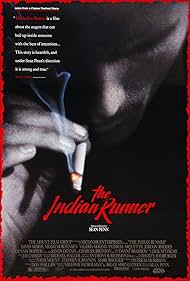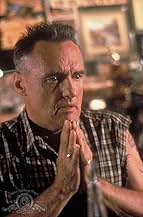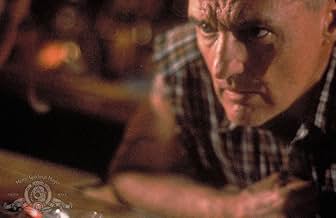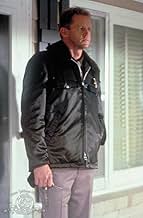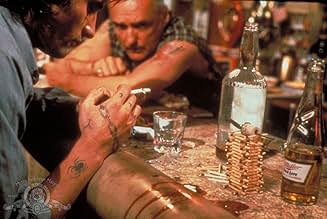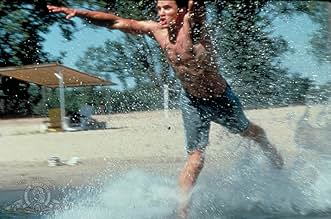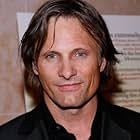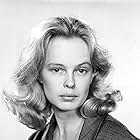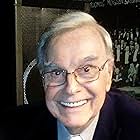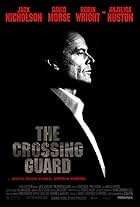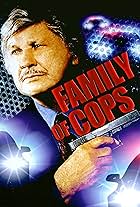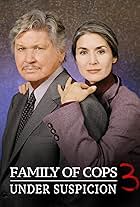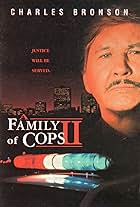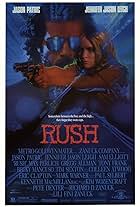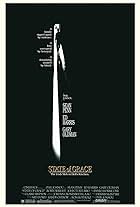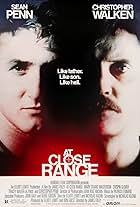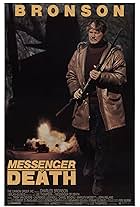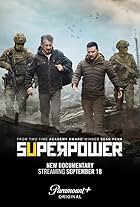A Vietnam vet comes home to his small town and finds himself in conflict with rules that his brother has vowed to uphold.A Vietnam vet comes home to his small town and finds himself in conflict with rules that his brother has vowed to uphold.A Vietnam vet comes home to his small town and finds himself in conflict with rules that his brother has vowed to uphold.
- Awards
- 1 win & 1 nomination
James Devney
- Deputy #1
- (as Jim Devney)
Leland J. Olson
- Doctor
- (as Dr. Leland J. Olson)
- Director
- Writer
- All cast & crew
- Production, box office & more at IMDbPro
Storyline
Did you know
- TriviaThe first movie in five years where Charles Bronson does not sport a mustache.
- GoofsFrank's prison tattoos change position throughout the movie.
Featured review
I spent over a decade watching and reviewing films for my job at MTV Europe. Even before and since I voraciously consume cinema of truly all kinds as a passion, I don't care about genre or even subject, only that a work is honest, inspired, effective. As with any art, of course.
I saw The Indian Runner at its Cannes film festival debut in 1991 and left the Grand Palais screening speechless. Where to start? We often hear about the usual checklist of script, acting, cinematography, editing, music, and so on, and of course all are stellar here. But it's the magic of the mix of all these and so many more subtleties about the experience of this film that makes it not just a terrific, achingly beautiful thing, moving, illuminating, but, I believe, having revisited it so many times over the last thirteen years (like so very few others among the hundreds seen once), one that is important and bound for a belated re- positioning as a cinematic gem in the history books of the future.
Cassavetes is clearly a major force behind this in the best possible way; he'd have stood up and applauded the way Penn took his spirit, his openness and gave it a more cinematic scope, color, pace, size, without compromising his own direct gaze on the human condition. Before this film Cassavetes' huge contribution had not been properly picked up, the baton in some respects still dangling where the late auteur had left it years back. In Indian Runner Penn points the way forward for this bold tone of cinematic voice (in a way to my mind even more clear than in his subsequent The Crossing Guard and The Pledge). The moment at the start of the film when Joe's dead victim's father begins singing a work song at the police station still stands out as the revelation that this movie had its own palette. I could go on and on but I'd probably bore... even ME (like Frank, no?).
What struck me in Cannes and forever since is how this massive achievement was so overlooked by other critics and then the public. I felt I was simply out of step but never wavered in my commitment to the film as a private cause which I'm pleased to say everyone I've talked into seeing it has agreed during exciting post-mortems. Also, as with great works in general, I notice it only gets better with repeated visits over the years. And seeing the comments about it on this site has cheered me up no end. I'm not alone!
It's one thing for a film to endure; another entirely for it to emerge from obscurity years after it was made and left aside. That very trajectory, likely, it seems now, for The Indian Runner, is going to become one of its many very special qualities. Conversations about its simple and complex strengths are gaining a new dimension with this look into what it was that made it so inaccessible to most of its viewers for its first decade and what it is and will be that finally unmasks the gem that until now was so oddly neglected. Suddenly it's on DVD and people are discussing it. Could it be good taste or whatever you call this kind of appreciation is on the rise? Wow. Reasons to be cheerful indeed.
And for those of us who first came across Viggo Mortenson here, imagine how itchy it made us sitting through his fine but passionless Lord of the Rings!
Here's to poetry, vision, and honesty about pain and life without judgment. Lord knows it's rare these days.
I saw The Indian Runner at its Cannes film festival debut in 1991 and left the Grand Palais screening speechless. Where to start? We often hear about the usual checklist of script, acting, cinematography, editing, music, and so on, and of course all are stellar here. But it's the magic of the mix of all these and so many more subtleties about the experience of this film that makes it not just a terrific, achingly beautiful thing, moving, illuminating, but, I believe, having revisited it so many times over the last thirteen years (like so very few others among the hundreds seen once), one that is important and bound for a belated re- positioning as a cinematic gem in the history books of the future.
Cassavetes is clearly a major force behind this in the best possible way; he'd have stood up and applauded the way Penn took his spirit, his openness and gave it a more cinematic scope, color, pace, size, without compromising his own direct gaze on the human condition. Before this film Cassavetes' huge contribution had not been properly picked up, the baton in some respects still dangling where the late auteur had left it years back. In Indian Runner Penn points the way forward for this bold tone of cinematic voice (in a way to my mind even more clear than in his subsequent The Crossing Guard and The Pledge). The moment at the start of the film when Joe's dead victim's father begins singing a work song at the police station still stands out as the revelation that this movie had its own palette. I could go on and on but I'd probably bore... even ME (like Frank, no?).
What struck me in Cannes and forever since is how this massive achievement was so overlooked by other critics and then the public. I felt I was simply out of step but never wavered in my commitment to the film as a private cause which I'm pleased to say everyone I've talked into seeing it has agreed during exciting post-mortems. Also, as with great works in general, I notice it only gets better with repeated visits over the years. And seeing the comments about it on this site has cheered me up no end. I'm not alone!
It's one thing for a film to endure; another entirely for it to emerge from obscurity years after it was made and left aside. That very trajectory, likely, it seems now, for The Indian Runner, is going to become one of its many very special qualities. Conversations about its simple and complex strengths are gaining a new dimension with this look into what it was that made it so inaccessible to most of its viewers for its first decade and what it is and will be that finally unmasks the gem that until now was so oddly neglected. Suddenly it's on DVD and people are discussing it. Could it be good taste or whatever you call this kind of appreciation is on the rise? Wow. Reasons to be cheerful indeed.
And for those of us who first came across Viggo Mortenson here, imagine how itchy it made us sitting through his fine but passionless Lord of the Rings!
Here's to poetry, vision, and honesty about pain and life without judgment. Lord knows it's rare these days.
- How long is The Indian Runner?Powered by Alexa
Details
Box office
- Budget
- $7,000,000 (estimated)
- Gross US & Canada
- $191,125
- Opening weekend US & Canada
- $34,047
- Sep 22, 1991
- Gross worldwide
- $191,125
Contribute to this page
Suggest an edit or add missing content

